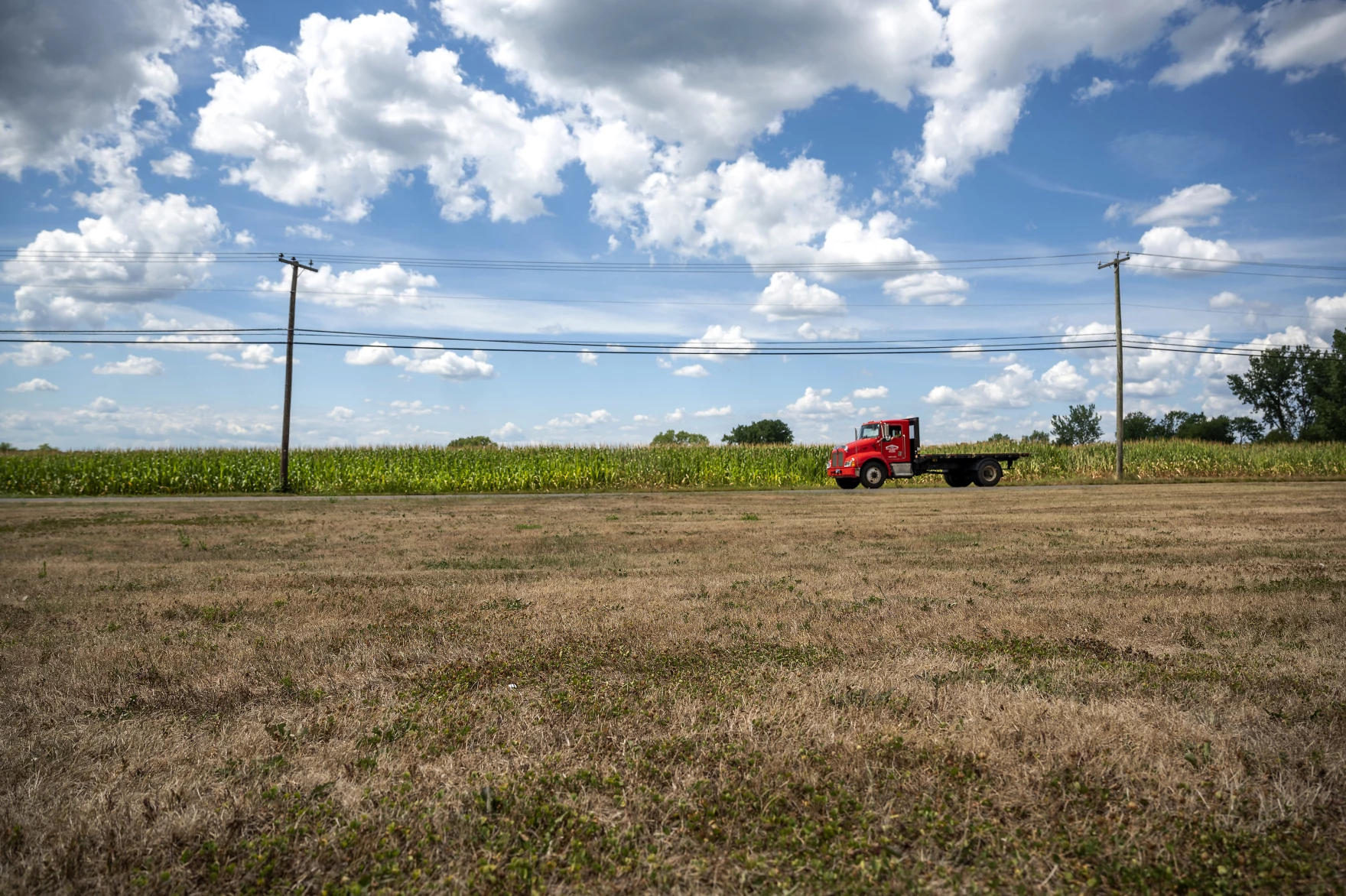Connecticut agriculture chief says drought is hitting farmers’ pocketbooks

The grass is so dry it crunches under foot while corn grows in the field just across the street near Meadowview Plaza in Ellington, Connecticut August 15, 2022. (Tyler Russell / Connecticut Public)
For many Connecticut residents, the impacts of an ongoing drought extend only as far as brown lawns or wilting flowers in a garden bed.
But weeks of dry weather are having a more serious impact on the state’s agriculture industry, forcing farmers to buy extra water and recalibrate their plans for harvest.
“Connecticut dairy men and women are bringing in water … to make sure that their animals have enough to drink,” said Bryan Hurlburt, commissioner of the state Department of Agriculture. “A lot of irrigation is happening on the crops.”
Farmers are turning to irrigation, in part, because of a stage 2 drought impacting all of Connecticut and most of New England.
While the drought isn’t as bad as previous years and, currently, is most pronounced in eastern regions of Massachusetts and Rhode Island, large portions of Connecticut are still suffering from a lack of rain.
Last month was the 10th driest July on record with only 2 inches of rain. Yet just one year ago, Connecticut had its 3rd wettest July with more than 9 inches of rain according to the National Oceanic and Atmospheric Administration. Hurlburt said extreme weather conditions appear to be the new normal due to climate change.
Additionally, Hurlburt said farmers are getting very nervous about their corn crops and expect their hay crops will also be very light. Normally farmers are able to get three hay cuttings per season, but this year there hasn’t even been a second cutting yet.
Hurlburt said because of low-quality hay grass and corn silage, “these farmers will have to supplement with additional food, vitamins, and grains later this year and into next year, which just increases the cost of production for them.”
But if you’re looking for a silver lining in this cloudless sky, Hurlburt said a lack of rain can actually be good for some crops and yield tastier fruits and vegetables.
“Some crops will be sweeter because of the lack of rain,” Hurlburt said. “You’re not really waterlogging the fruit. You might really get that flavor burst biting into an ear of corn or fresh field tomato.”
